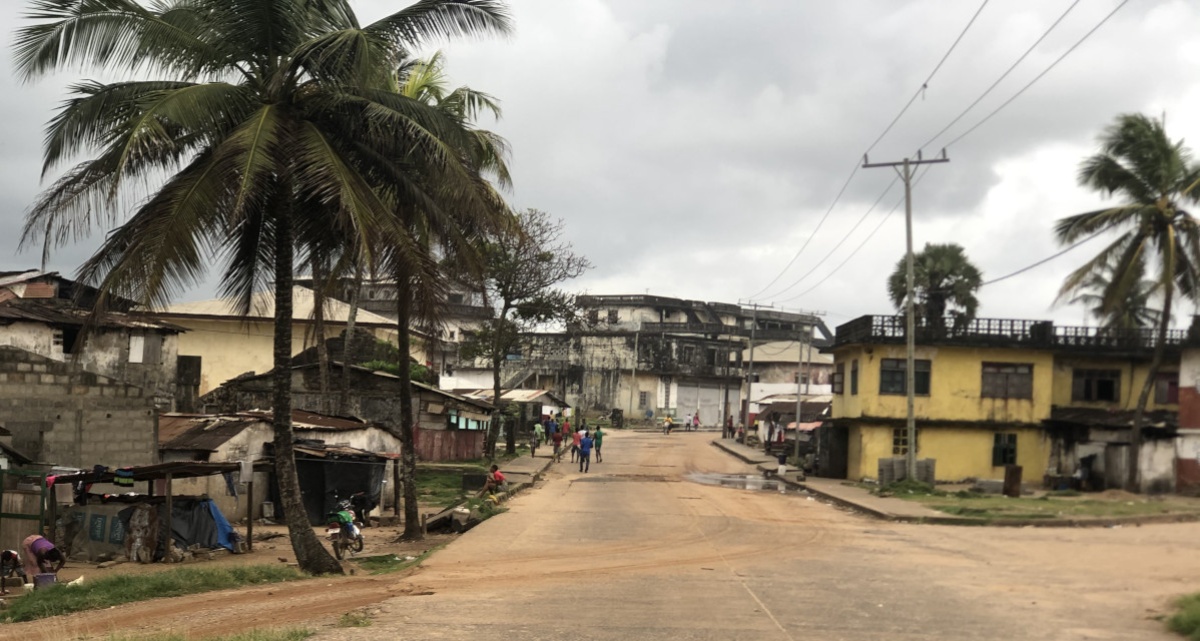Finding the Way Back Home, One Conversation at a Time
PIH Liberia psychosocial worker Helena Wesley is on a mission to help people who are “lost” and on the streets in her native Maryland County
Posted on Oct 16, 2020

People struggling with mental health conditions who have stopped receiving treatment or taking medication—and as a result have seen their conditions worsen and may be homeless—are sometimes called “lost” patients.
In Maryland County, Liberia, Helena Wesley has made it her mission to find them.
Wesley is from Maryland County and has worked since 2015 as a mental health community psychosocial worker for Partners In Health. During that time, she has tracked and connected with more than 20 people, so-called “lost” patients, and reintegrated them with their families, communities, and dignified treatment.

“Because I grew up in Maryland, I know almost every family, and so when I was deployed into the community, I saw it as an important sense of duty to find and help people with mental illness,” she said.
Those 20 represent just her most significant cases. Wesley and her colleagues on the PIH Liberia mental health team collectively conduct more than 520 community visits a month, on average, to support people with mental health conditions and their families.
PIH Liberia’s mental health program is community-based, linked to health centers and enriched by hospitals, with a rights-based approach to building resilient health systems. PIH has helped integrate mental health care delivery across the country by developing an outreach program for the homeless, psychosocial support, and electronic medical records, while piloting quality improvement projects to increase referrals from traditional healers.
Clinicians deliver care within a mental health referral system and have been trained to accurately screen and diagnose people for mental health conditions. The team works extensively at the community level to provide care and educate community members about mental health conditions through patient-led radio broadcasts, training, and engagement with traditional and faith-based healers.
For Wesley, the job often means talking with her neighbors—and the conversations aren’t always easy.
When Wesley began working with PIH, she regularly visited families who she knew included someone with mental health conditions, or who community members suggested she visit. She soon realized, though, that most of those families didn’t know the whereabouts of their relatives with mental health conditions.
Due to stigma and other factors, people with mental health conditions who leave their homes often don’t do so willingly—they may not be receiving dignified care at home, or even may be forced out by their families.
In such situations, Wesley searches in local marketplaces and public gathering spaces, to find people and try to enroll them in PIH’s mental health program.
When she is able to find someone who has been lost and is struggling with mental health conditions, Wesley says, the first thing she does is call them by their name and offer them something to eat. Helping someone with basic needs goes hand in hand with emotional support.
“I engage them in conversation and use physical contact, like a pat on the shoulder or back, to show them I care and gain their trust,” she said. “After a few of these conversations, I am able to convince them to return with me, back home to their family, in order to gain the family’s support and begin treatment at PIH-supported health facilities.”
Wesley acknowledged that she often faces challenges in her work, as many people with mental health conditions have experienced stigma and discrimination. But she remains determined and does all she can to help people start treatment and get better.
When people are in treatment, Wesley visits them at their homes or a health facility in the morning and evening, every day, to monitor their progress and well-being.
In addition to caring for patients, Wesley also works to raise local awareness about epilepsy, HIV transmission, the importance of adhering to medication, and stigmatization within her community, as part of PIH-Liberia’s community health programming. In the past year, the Liberia mental health team conducted 194 activities with communities.
Community members trust her, she said, and often refer potential cases to her.
“PIH’s work in promoting mental health services in Liberia is making an impact. And that is why I am motivated—seeing patients who were rejected and very often abused on the streets due to their mental state accept treatment and reunite with their families gives me so much satisfaction,” she said. “It is very fulfilling to have patients in recovery now call my name and chat with me whenever they see me, or when I visit them at home.”


